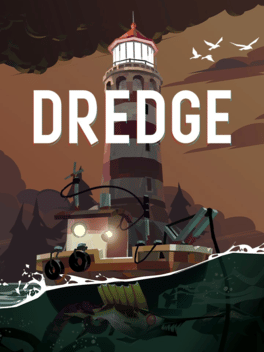Given its fishing/horror premise and the reductive headlines it has inspired, it’d be easy for someone who has never played Dredge before to dismiss it as nothing more than a gimmick. Yes, it’s a fishing game, and yes, it’s a horror game, but Dredge is so loosely connected to its peers in either genre that reducing it to those tags scarcely breaks the surface of its actual accomplishments.
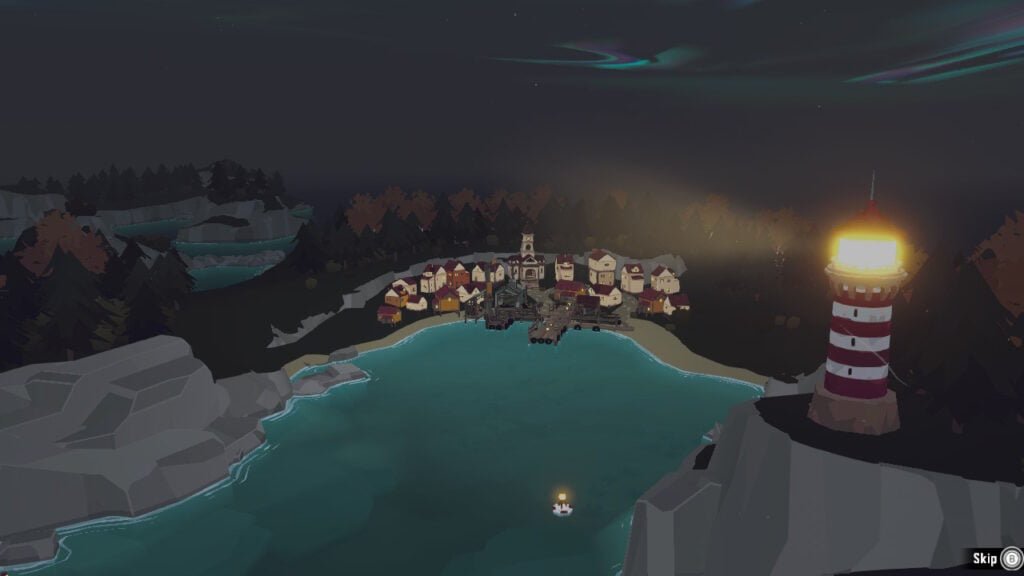
Whether it’s in a fully devoted fishing game or relegated to a side activity in a bigger adventure, the video game version of fishing is often a poor approximation of its real-life counterpart, with the peaks and lulls of the experience significantly compressed to maintain player engagement. Dredge, however, abstracts its fishing mechanics so far as to make them delightfully mundane, with the act of landing a fish often being as simple as pressing a single button. Sure, you can time a handful of button presses to reel a catch in faster, but the speed of the task is hardly what the game is about.
Dredge’s deliberate mundanity is the crux of its horror, giving way to a quiet, solemn loneliness as you leave port each morning to do your work. As you explore inlets or bob on the open sea, the game teases you with small otherworldly horrors during the day—a grotesque fish, an abandoned ruin, a strange person—their presence foreboding, but ultimately safe. But when night falls, things become much more dangerous for you and your vessel.
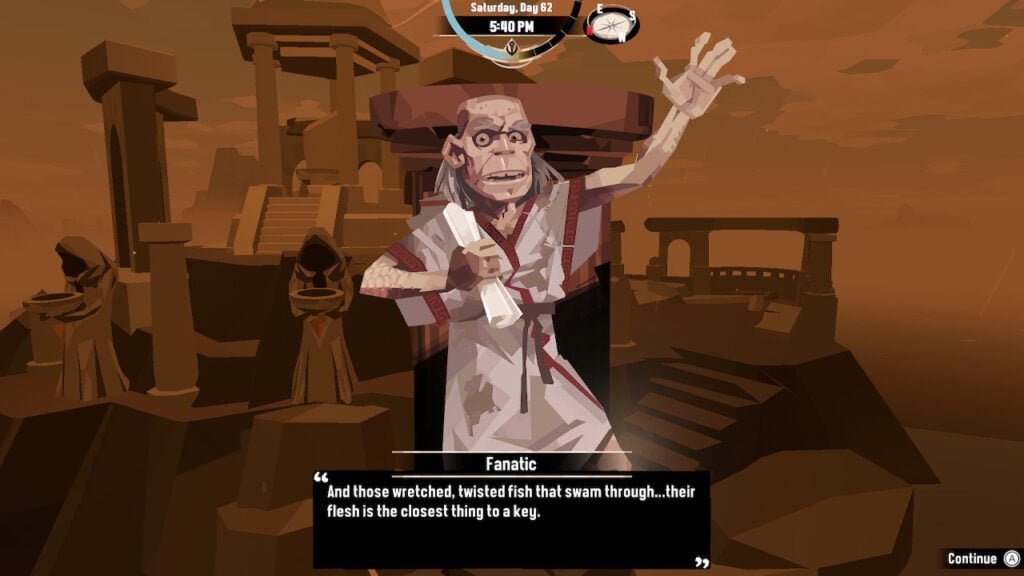
In the early moments of the game, your town’s mayor ominously cautions you about staying out past sundown “when the fog rolls in,” and cautious players will heed his advice, returning to port as the sun sets, selling their day’s catch, and turning in for the night. Eventually though, whether from curiosity or circumstance, you’ll find yourself out on the water as the world goes dark around you. The already quiet, atmospheric soundtrack fades out completely and you’re left with just the sound of water sloshing against your boat. You have a light, but it struggles to cut through the darkness and the fog, barely illuminating rocks that are mere meters in front of you—which is problematic, as colliding with one can cause costly damage to your vessel, equipment, and cargo, or worse: a game over. Still, if you’re careful, the rocks can easily be avoided. It quickly becomes clear that the mayor’s ominous warning was about the other things that can happen in the darkness.
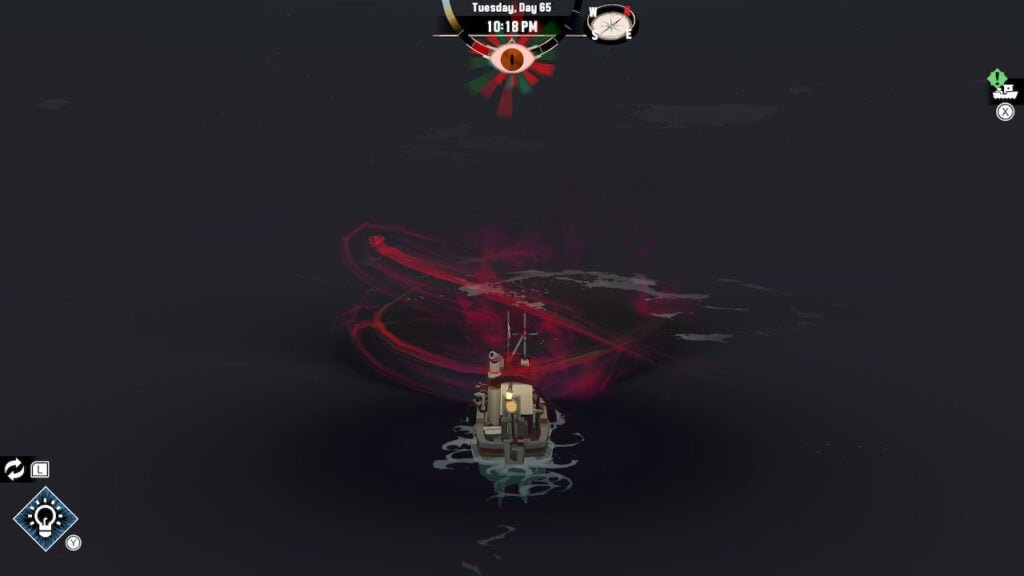
In Dredge, spending too much time out on the sea after dark will negatively impact your character’s sanity from panic setting in. As this gets worse, it’s like the veil between your world and another recedes, causing a myriad of effects, some harmless, some helpful, some dangerous. Equipping your boat with a brighter light helps you keep your wits about you longer into the night, but the light can also attract monsters that have crossed over as you explore the darkness. Further into the game, you’re encouraged to flirt with the dangers of the night, sometimes even intentionally allowing yourself to go mad to find rare, otherworldly fish or uncover new mysteries. With only a handful of tricks, the system wastes a bit of its potential, but it’s still a lot of fun to interact with.
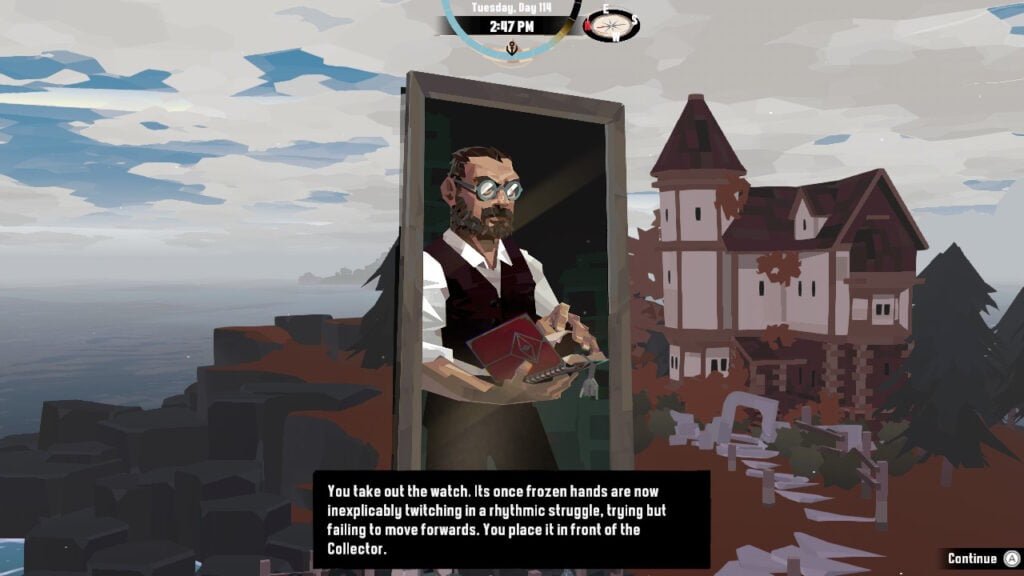
Dredge is far from the scariest game out there, but that’s not really what it’s going for. It’s never trying to be shocking or particularly gross. It’s not violent. It’s just unsettling. After beating it, my wife, who is not a fan of horror, asked me about the ending. I told her, and she replied, “That makes me uncomfortable and I don’t like that.” I couldn’t put it better myself.
Dredge Screenshots
Screenshots captured from the Dredge and its expansion, The Pale Reach, on Nintendo Switch
Dredge
Original Release: 2023
Developer(s): Black Salt Games
Publisher(s): Team 17
Platforms(s): Windows, Linux, OS X, Android, PlayStation 4, Playstion 5, Nintendo Switch, Xbox One, Xbox Series X/S
